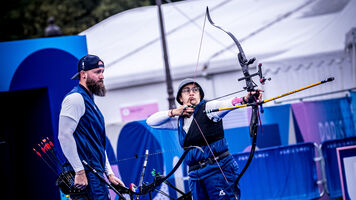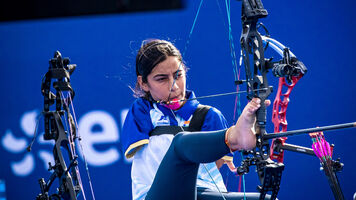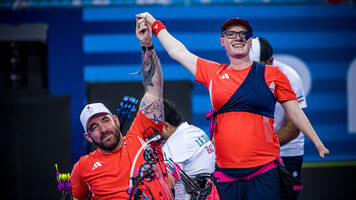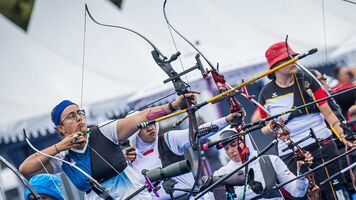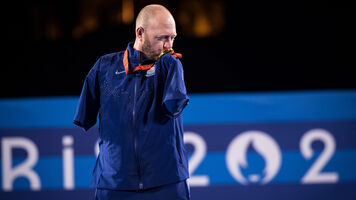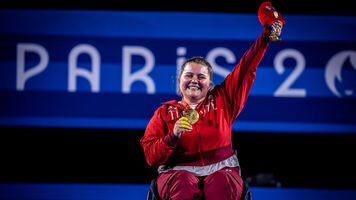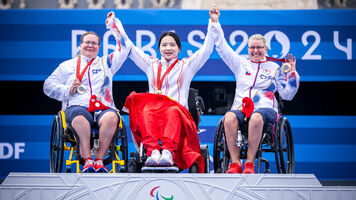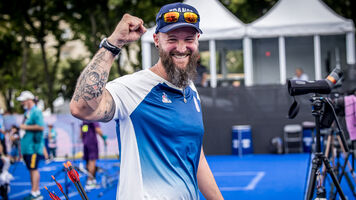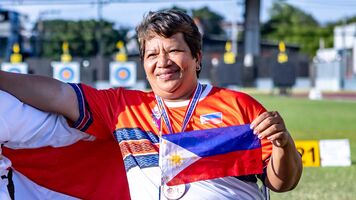Korea win again... just
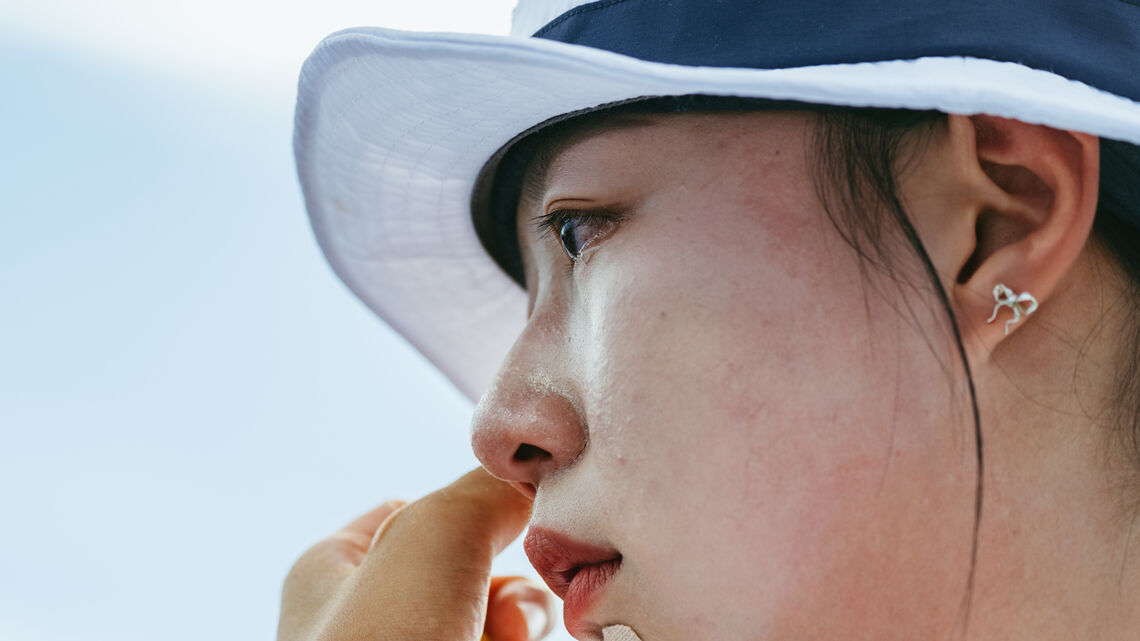
They won. But it was so, so close to falling apart.
After a morning in which once-fancied home favourites France fell at the first hurdle to the Netherlands, the day really started at 2.38pm, with the first appearance of the Korean women’s team.
Except it wasn’t just the Korean women’s team, and they were not only competing against a series of opponents. They were also competing against the past, the legacy that illustrious predecessors had built, one of the most extraordinary Olympic runs of all time. They were running a race against shadows.
Others in the Korean setup had spoken of the immense, almost crushing pressure of trying to live up to it, with intense interest from media both home and abroad. (Imagine the entire focus of your country’s Olympics being on just… well, you.)
It also was a day of hellish, capricious wind which saw arrows in many unfamiliar positions on the face.
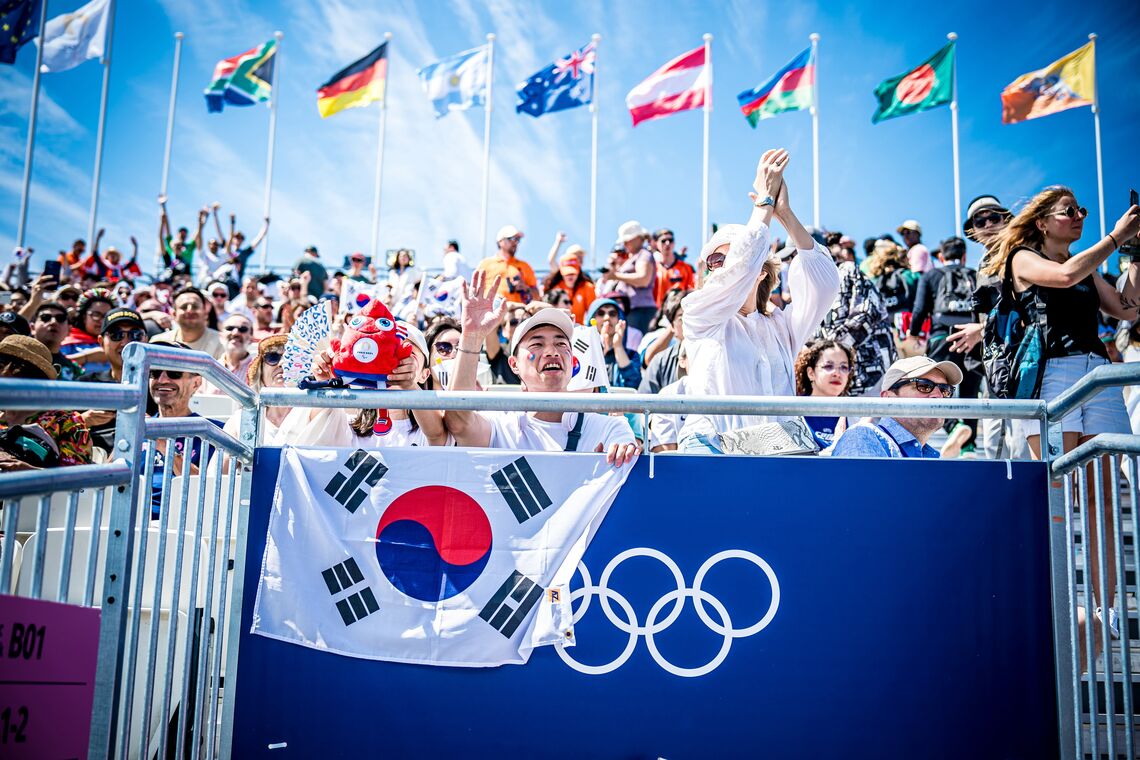
It’s not really surprising then, that three athletes in white walked out onto the stage for their first match looking absolutely terrified. They had to face the perennial danger of a Chinese Taipei team, led for the third Olympics in a row by the brooding, talismanic presence of Lei Chien-Ying.
None of the Korean team looked more uncomfortable than captain and rotation opener Jeon Hunyoung. By Korean tradition, she was of course captain merely by virtue of being the eldest of the trio, rather than on the basis of her extremely limited international experience.
She stood on the line for the first time looking like she would rather be doing almost anything else, so perhaps it’s not surprising that she opened with an eight. She followed that with two more eights and a seven, and didn’t hit the middle until the last end.
With two Korean sets of a mere 52, the score was tied at 2-2. If Taipei’s anchor Li Tsai-Chi hadn’t put in an awful six to close out the first end, Taipei might have been four-nil up.
And then… who knows.
The women from Chinese Taipei were good, but not quite sharp enough to take down an improving Korea. They lowered, rather than raised their game.
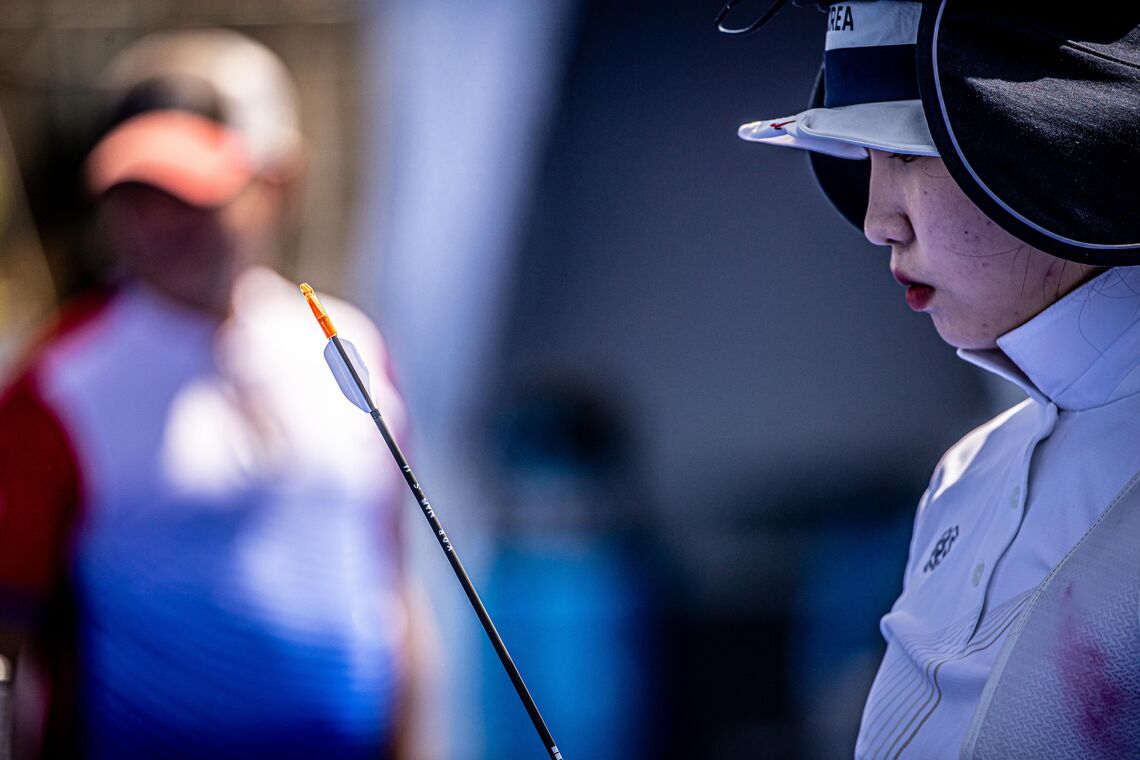
First bullet dodged. Next up: the Netherlands, who had thumped a lacklustre France in the morning and pushed out a woeful India with ends of 52, 54 and 53. This time, it was the Dutch turn to look slightly uncomfortable on the stage, and the Koreans to look relaxed. This one was a mere formality. Surely.
Korea opened with a 57. That’s the Korea we know. But they were so-so in the second and the Netherlands edged it 53 to 52, and then opened the throttle in the third with a 58.
The bottom-seeded Netherlands were 4-2 up against the top seeds Korea, in the semifinal of an Olympics. Could it… really happen? But Korea fired back with an impassable 59 in the fourth and won the shoot-off despite Lim Sihyeon throwing down a seven.
The champions rose to the occasion, as champions have to do. But only just. It was still on. But it was looking shaky, all of a sudden. Beatable. The machine was stuttering.
It was time to face China. Of course it was. The second seeds, who had beaten Korea in World Cup action twice already in 2024, had even been whispered in some circles as the favourites.
But perhaps the pressure had got to them too. They had been slightly workmanlike in their earlier round against Mexico rather than mercurial. It was good, but it wasn’t really looking like quite enough.
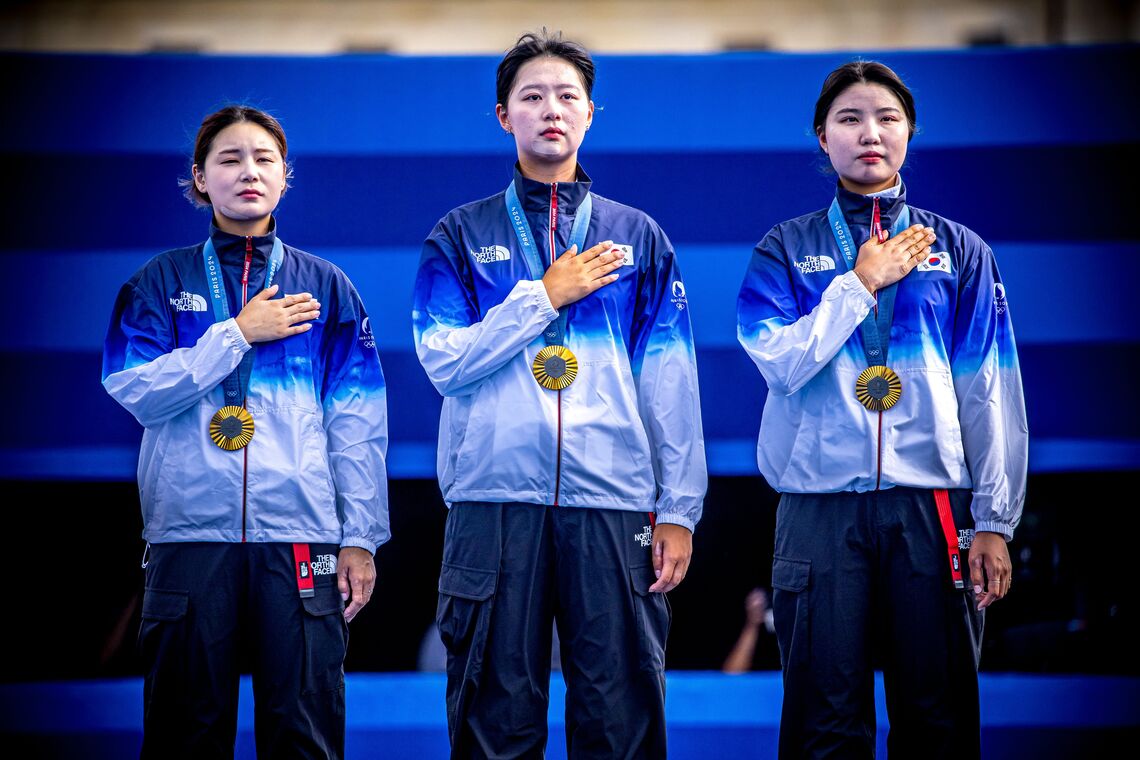
It was time for the gold medal match. This time, all six of them stood on the stage stiffly, nervous, deathly pale. Who would sign up for this? But when Jeon put in the first arrow – a ten – the biggest roar of the day went up. Five more of her arrows would be tens. Without her finally finding her form and her mark, it would have been over. She arrived and stepped up just in time – just as China’s opener Li Jiaman seemed to fall to pieces.
But whether wind or nerves, it wasn’t spectacular. Korea put in eight eights in the final – but China put in seven. It was a game of grim edges. Korea were 4-0 up and in the driving seat but left the door wide open for China to level it at 4-4.
A shoot-off. Jiaman stepped up, and... put in an terrible eight. Her teammates were better, but it wasn’t enough. An anti-climatic judge’s measure saw Korean arrows upgraded. The moment was drawn out. But it was there. Just.
They were examined once again, but the team format, requiring strength in depth, trust and talent in equal measure, meant that they could shine – just enough. The losses at the World Cups were mere blips. Forget them. It was done.
The tenth title was achieved through a handful of strong, but unspectacular moments on the biggest stage of all. They remain the best, but we didn’t really see the best of them. There was no dominance. They looked shattered at the end, rather than happy. It can’t have been how they imagined it would go.
If Li Jiaman had been on point or if another opponent had been just a bit crisper, had one or two more great arrows, it would have been over. (I wonder if Mexico would have finished them off.)
But they won. The legacy remains. Perhaps next time, the challenge will finally falter; we will see a China with a fraction more steel, or a Chinese Taipei of new, mercurial talents, or a fired-up Mexico on the right side of the bracket. A team that will take it to them when it ultimately matters.
But that time is not now. And on it goes. Until the next time.



